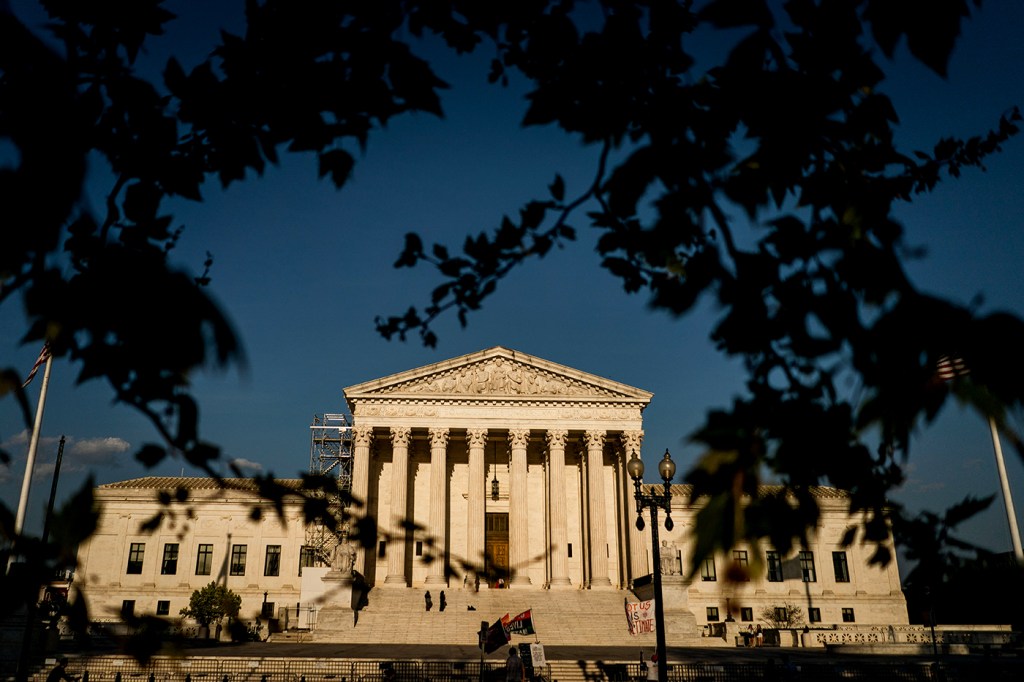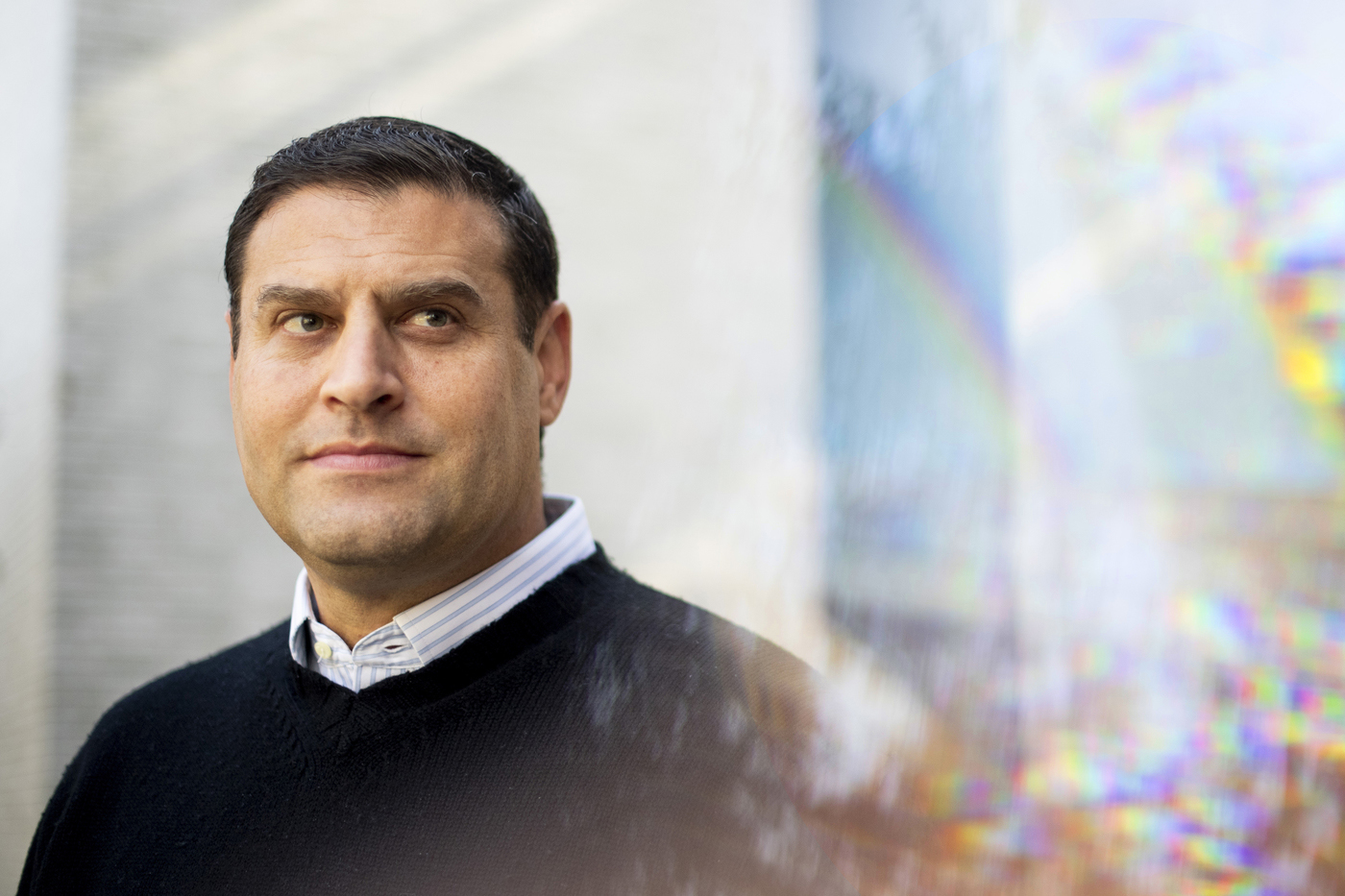The Supreme Court will decide these major cases in the coming days. Here are the likely outcomes, according to our experts

The Supreme Court is wrapping up another blockbuster term and will be issuing decisions on a number of key cases as soon as this week.
The expected rulings will touch on several matters of significant public interest, including affirmative action in college admissions and President Joe Biden’s student loan debt forgiveness program.
Dan Urman, director of the Law and Public Policy Minor at Northeastern, said decisions in the affirmative action (Students for Fair Admissions v. President and Fellows of Harvard College; Students for Fair Admissions v. University of North Carolina) and student loans (Biden v. Nebraska) cases are expected any day now.
Here is a look at some of the major cases and likely decisions—and their potential impacts.

Affirmative Action
The groups challenging affirmative action policies at Harvard University and UNC-Chapel Hill allege that the higher education institutions discriminate against white and Asian students by factoring race into admission criteria.
The conservative majority on the Supreme Court appears ready to strike down race-conscious admission policies on the grounds that they run afoul of Title VI of the 1964 Civil Rights Act. Many experts and court watchers expect the court to rule against Harvard and University of North Carolina, which would mean that universities across the country would no longer be able to consider race as one factor in admitting students.
But that’s not how higher education has traditionally functioned in the United States, Urman says, noting the many different factors that universities weigh in what’s been described as a “holistic” process when admitting prospective students.
“‘Holistic’ has generally meant that race can be a part,” Urman says. “It’s a combination of your grades, now your optional test scores, and what you would bring to the university, and that is diversity of geography, family, musical talent—it’s kind of everything.”
So, if the conservative bench throws out affirmative action, what would come next for higher education?
“This decision will not resolve the issue of diversity in higher education. However, there are a few possible paths forward.” Urman says. “There’s one world where what is next is that it’s not officially acceptable for admissions officers to know” the race of the applicant. That’s probably the safest path legally for universities, he says.
“There’s another world where [admissions officials] can know an applicant’s race, but can’t legally use it,” Urman says. “Then, officials can evaluate the sincerity or authenticity of an individual applicants’ lived experience.”
“All of these options are a little bit weird,” he adds.
Weird, he says, because they run counter to American higher educational values—the idea that an applicant’s worth shouldn’t be reduced to test scores or grades. Urman says universities would have to redouble their efforts to maintain diverse campuses through so-called “race-neutral” alternatives, such as recruitment, partnering with low-income or low-performing high schools, and increasing financial aid opportunities.
“I am absolutely predicting that the Supreme Court will strike down racial affirmative action in higher education,” Urman adds.
Student loan debt forgiveness
Six conservative states (Arkansas, Iowa, Kansas, Missouri, Nebraska and South Carolina) challenged Biden’s debt forgiveness program, which sought to provide relief to tens of millions of borrowers. Under the plan, those borrowers could apply to have up to $20,000 in debt wiped away.
A separate challenge, brought by a pair of disgruntled borrowers, who didn’t qualify for maximum forgiveness under the Biden plan, was consolidated with the states’ suit. A single decision is coming addressing whether the Biden administration had the authority under a 2003 law that gives the secretary of education “expansive authority to alleviate the hardship that federal student loan recipients may suffer as a result of national emergencies”—here, the COVID-19 pandemic—to execute the program.
“One of the reasons why the Biden administration relied on the HEROES Act was it was pretty quick and did not require what is called notice and comment rulemaking, which is a boring way of saying, ‘taking input before the affected parties before making a decision,’” he says.
Most observers and court watchers, including Urman, have said the Supreme Court will rule Biden’s plan illegal, whereafter borrowers should expect to begin making payments again sometime later in the year.
‘Independent state legislature’ theory
During North Carolina’s most recent congressional redistricting process, a group of Republican state lawmakers allegedly redrew the state’s maps to favor their party. The state Supreme Court tossed out those maps, arguing that the new districts—which would apply in federal congressional elections—were gerrymandered, redrawing those maps in the process.
State legislators appealed the state Supreme Court’s finding to the nation’s highest court, arguing under the “independent state legislature theory” that they have unchecked power to set the rules of their state’s federal elections.
The case, Moore v. Harper, asks whether a state’s judicial branch can void rules set by its legislature governing elections, and replace them with the court’s own regulations. It’s a question that, Urman says, may ultimately be moot this session, as the North Carolina Supreme Court ordered to rehear the underlying case.
“It looks like that case might be mooted, meaning there might be an offramp where it gets resolved without the court having to reach the merits,” Urman says.
But some election experts have warned that, if the case proceeds and the Supreme Court adopts the theory, it would “completely upend and undermine voting rights, redistricting reforms and elections administration.”
“The court is looking for a way to avoid that thorny question about whether courts are not able to review extreme measures taken by states as it relates to elections, and especially counting electoral votes,” Urman adds.
Free speech and LGBTQIA+ rights
Lorie Smith, a Colorado-based website designer, is suing to block the enforcement of the state’s public accommodations law, which the Colorado Civil Rights Commission tried using as a way to stop her from refusing to create wedding websites for same-sex couples. A devout Christian, she argues that she should be able to expand her business to include wedding websites only for opposite-sex couples.
Smith’s attorney argued that Smith “decides what to create based on the message, not who requests it.” The conservative majority signaled it was likely to side with an argument put forward by Chief Justice John Roberts, who framed the issue in terms of “compelled speech.” The court’s liberal wing expressed doubt about whether the act of creating a wedding website constituted the expression of a message.
“I predict the wedding website designer wins,” Urman says. “What I think ends up happening here is you get the idea of ‘associational rights.’ So it’s their free-speech right not to associate with a message they disagree with.”
“Now my analogy, which I think is the more convincing argument, is, no it’s not about free speech. If I open up a bookstore, I can’t now say, ‘I won’t sell books to this LGBTQIA+ person,’” Urman says.
“So this is a great example of framing,” he adds. “It’s all about the way you tell the story.”
Tanner Stening is a Northeastern Global News reporter. Email him at t.stening@northeastern.edu. Follow him on Twitter @tstening90.






